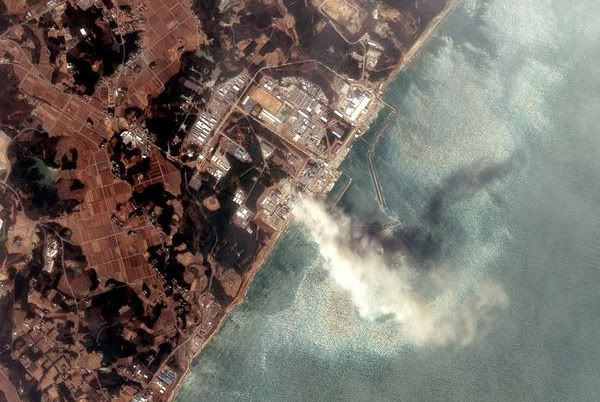Welcome to DU!
The truly grassroots left-of-center political community where regular people, not algorithms, drive the discussions and set the standards.
Join the community:
Create a free account
Support DU (and get rid of ads!):
Become a Star Member
Latest Breaking News
General Discussion
The DU Lounge
All Forums
Issue Forums
Culture Forums
Alliance Forums
Region Forums
Support Forums
Help & Search
General Discussion
Related: Editorials & Other Articles, Issue Forums, Alliance Forums, Region ForumsGreenpeace releases confidential IAEA Fukushima accident report

Greenpeace releases confidential IAEA Fukushima-Daiichi accident report
The International Atomic Energy Agency report fails to accurately reflect the scale and consequences of the Fukushima disaster.
by Justin McKeating
Greenpeace Blogpost - 1 June, 2015
The International Atomic Energy Agency's Board of Governors meets on June the 8th to discuss its confidential Fukushima-Daiichi Accident Summary Report. The report describes itself as 'an assessment of the causes and consequences of the accident at the Fukushima Daiichi nuclear power plant in Japan that began on 11 March 2011.'
Greenpeace has received a copy of the report and we made it public last week. We've also conducted an initial analysis of the report and our findings are not good.
Yukiya Amano, the IAEA Director General says the report is 'an authoritative, factual and balanced assessment, addressing the causes and consequences of the accident, as well as lessons learned.'
Yet our experts find it to be full of inaccuracies, uncertainties, and that it fails to address several highly important issues. We've sent our findings to Mr Amano.
Here are some examples.
• The IAEA admits that radiation monitoring was not working properly in the days immediately after the Fukushima disaster began.
• Despite this uncertainty, the report downplays the health risks to the disaster's many victims.
• This means that the estimates of the levels of radiation the people of Fukushima were exposed to cannot be trusted.
• The IAEA's analysis of the new safety regulations in Japan are superficial at best, and they offer no evidence in the report that the Japanese nuclear industry is operating to the global highest standards of nuclear safety.
• The reality is that there are major flaws in nuclear regulation in Japan with seismic and other threats to nuclear plants safety ignored or underestimated.
• The report dismisses the environmental impact of the disaster on animal life despite scientific investigations finding measurable effects on the region's fauna.
• The report fails to acknowledge the uncertainties that still surround the causes of the disaster. Much of the critical systems inside the reactors that melted down have not yet been inspected.
SNIP...
In short, the IAEA is moving to protect the nuclear industry instead of the people whose lives have been destroyed by the Fukushima disaster and those who may be affected by future nuclear accidents.
This is not a surprise, a central role of the IAEA is to promote the global expansion of nuclear power. The fact that all commercial nuclear reactors in Japan – 43 in total – remain shutdown is a direct challenge to the IAEA's mission. That is the context in which the IAEA report must be seen.
CONTINUED w links to IAEA reports, etc....
http://www.greenpeace.org/international/en/news/Blogs/nuclear-reaction/IAEA-Fukushima-Daiichi-accident-report/blog/53055/?utm_source=feedburner&utm_medium=feed&utm_campaign=Feed%3A%2BGreenpeaceNews%2B%28Greenpeace%2BNews%29
InfoView thread info, including edit history
TrashPut this thread in your Trash Can (My DU » Trash Can)
BookmarkAdd this thread to your Bookmarks (My DU » Bookmarks)
0 replies, 629 views
ShareGet links to this post and/or share on social media
AlertAlert this post for a rule violation
PowersThere are no powers you can use on this post
EditCannot edit other people's posts
ReplyReply to this post
EditCannot edit other people's posts
Rec (3)
ReplyReply to this post